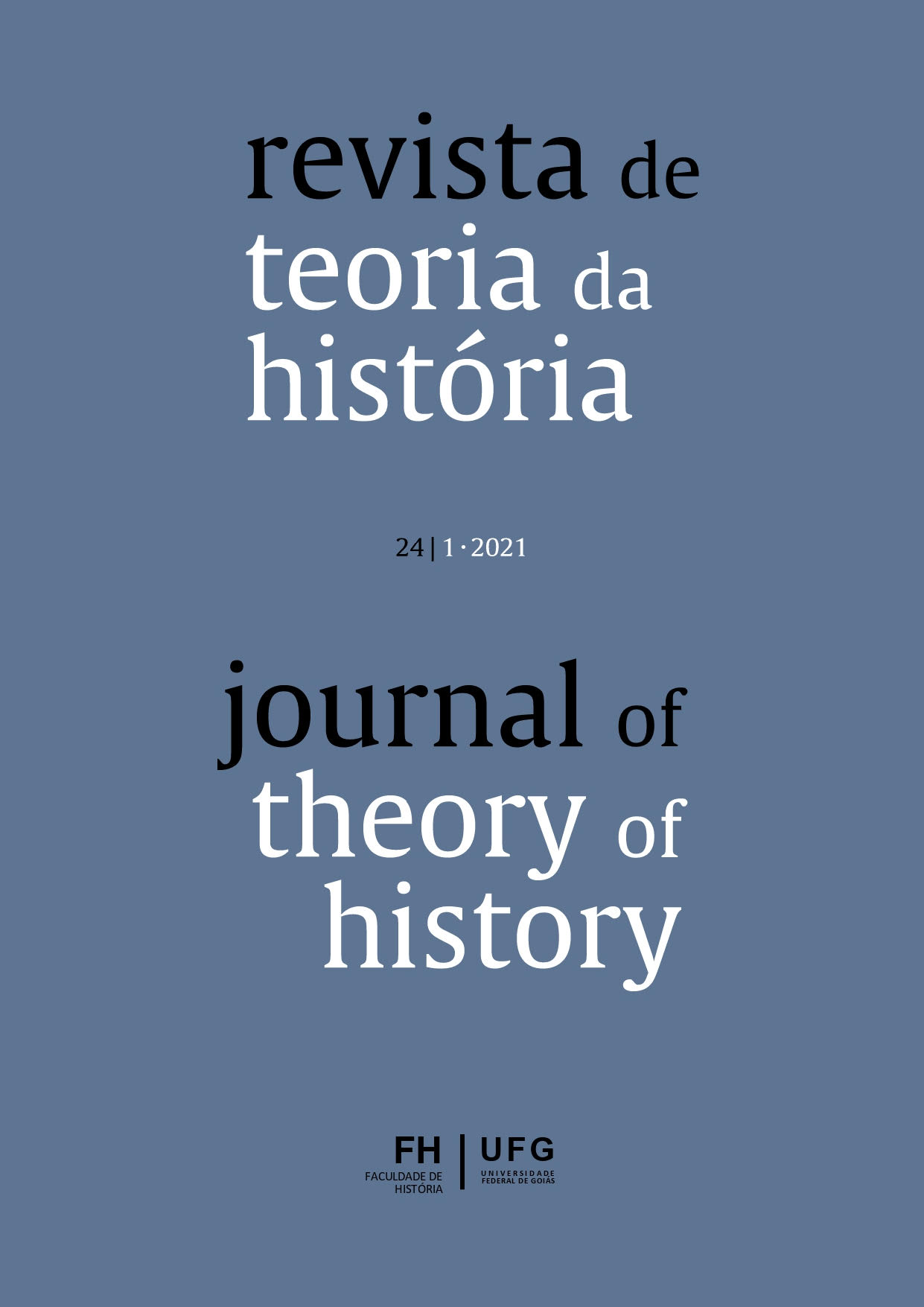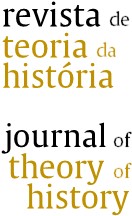Sentido e História
Reflexões sobre Ontologia Histórica
DOI:
https://doi.org/10.5216/rth.v24i1.69671Keywords:
ontologia, sentido, historicidadeAbstract
According to the central idea of this article, the relationship between history and meaning must be developed as a double and reciprocal entanglement. The meaning is essentially historical, in such a way that illuminating the being and the function of the meaning also means explaining it in its historicity. On the other hand, history is essentially meaningful; understanding its logic also means explaining its meaningful character. The connection between history and meaning, according to the following thesis, is the structure and the core of the correlation between knowledge and history, not one of its particular qualities or a mere additional dimension of its characteristics. From this, one can get a definition of what is meant here by Historical Ontology.
References
ANGEHRN, Emil. “Geschichte und System. Die Bedeutung der Geschichte in Hegels Philosophie.” In: JAMME, Christoph; Yohichi Kubo (org.). Logik und Realität: Wie systematisch ist Hegels System?. München: Fink, 2012a.
ANGEHRN, Emil. “Das Denken der Geschichte. Hegels Theorie des Geistes zwischen Geschichtsphilosophie und Philosophiegeschichte.” In: Internationales Jahrbuch des Deutschen Idealismus. International Yearbook of German Idealism. Hrg. von Fred Rush und Jürgen Stolzenberg—Band 10, 2012b.
ANGEHRN, Emil. “Kultur zwischen Bewahrung und Veränderung. Eine hermeneutische Perspektive”. In: DEINES, Stefan; Daniel Martin Feige, Martin Seel (org.). Formen kulturellen Wandels. Bielefeld: transcript, 2012c.
ANGEHRN, Emil. Geschichte. History. Berlin / Boston: Walter de Gruyter, 2014.
CASSIRER, Ernst. “‚Geist’ und ‚Leben’ in der Philosophie der Gegenwart”. In: Geist und Leben. Schriften zu den Lebensordnungen von Natur und Kunst, Geschichte und Sprache. Leipzig: Reclam 1993.
CASTORIADIS, Cornelius. L’institution imaginaire de la société. Paris: Seuil, 1975.
DILTHEY, Wilhelm. Der Aufbau der geschichtlichen Welt in den Geisteswissenschaften (Hrg. von Manfred Riedel). Frankfurt am Main: Suhrkamp, 1970.
GADAMER, Hans-Georg. “Selbstdarstellung”. In: Gesammelte Werke—Bd.2. Tübingen: Mohr Siebeck, 1995.
GADAMER, Hans-Georg. “Frühromantik, Hermeneutik, Dekonstruktivismus”. In: Gesammelte Werke—Bd.10. Tübingen: Mohr Siebeck, 1995.
HACKING, Ian. Historische Ontologie. Beiträge zur Philosophie und Geschichte des Wissens. Zürich: Chronos, 2006.
HAMPE, Michael. “Die Historische Ontologie und einige Motive des deutschen Idealismus.” In: SANDKAULEN, Birgit (org.). Gestalten des Bewusstseins. Genealogisches Denken im Kontext Hegels [Hegel-Studien Beiheft 52]. Hamburg: Meiner,
HEGEL, G. W. F. Vorlesungen zur Philosophie der Geschichte. Frankfurt am Main: Suhrkamp, 1970.
LUHMANN, Niklas. “Sinn als Grundbegriff der Soziologie”. In: HABERMAS, Jürgen; Niklas Luhmann. Theorie der Gesellschaft oder Sozialtechnologie. Frankfurt am Main: Suhrkamp, 1971.
LUHMANN, Niklas. Soziale Systeme. Grundriss einer allgemeinen Theorie. Frankfurt am Main: Suhrkamp, 1984.
SIMMEL, Georg. “Der Begriff und die Tragödie der Kultur”. In: Gesamtausgabe— Bd.14. Frankfurt am Main: Suhrkamp, 1996.
SIMMEL, Georg. “Der Konflikt der modernen Kultur”. Gesamtausgabe—Bd.16. Frankfurt am Main: Suhrkamp, 1999.
Downloads
Published
How to Cite
Issue
Section
License
Copyright (c) 2021 rth |

This work is licensed under a Creative Commons Attribution-NonCommercial-NoDerivatives 4.0 International License.
The journal publishes only and exclusively original manuscripts. All rights reserved.
Licensed under a Creative Commons Attribution-NonCommercial-NoDerivatives 4.0 International License



